More and more countries around the world are adopting carbon taxes to reduce greenhouse gas emissions and become less dependent on fossil fuels, aiming for sustainable development.
Tax policy towards green growth
A carbon tax is imposed on the amount of CO2 emitted from the combustion of fossil fuels. The basic premise of a carbon tax is to impose an additional cost on each ton of CO2 emitted into the atmosphere in order to internalize the external costs of CO2 emissions to society. The carbon tax is designed to offset the social costs of CO2 emissions such as the cost of remediating environmental damage. In other words, a carbon tax is designed to reduce or eliminate the negative externalities of CO2 emissions.
[caption id="attachment_391784" align="aligncenter" width="768"]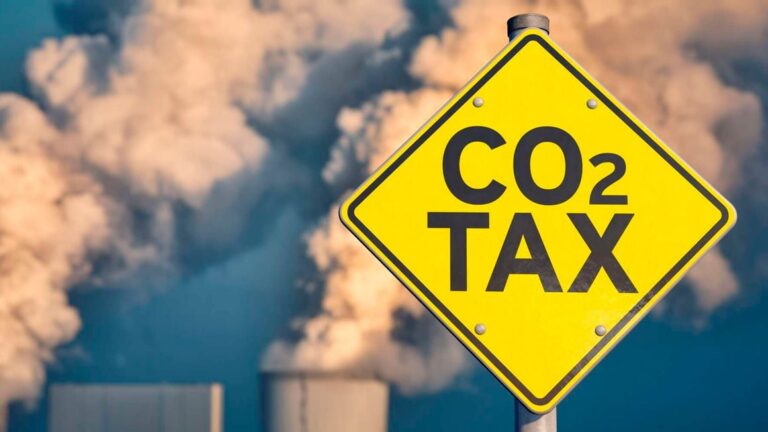 Carbon tax is a trend that is being applied more and more widely by countries around the world. Photo: Shutterstock[/caption]
Carbon tax is a trend that is being applied more and more widely by countries around the world. Photo: Shutterstock[/caption]According to statistics site Statista, in an effort to cut greenhouse gases and encourage the use of renewable energy, more and more countries are adopting carbon taxes.
In 1990, Finland became the first country in the world to adopt a carbon tax. Dozens of countries have since followed. As of March 31, 2022, Uruguay has the highest carbon tax rate in the world at nearly $156/ton of CO₂. Next is Liechtenstein ($130.81/ton of CO2); Sweden ($125.56/ton of CO2); Switzerland ($93.81/ton of CO2)... Poland has a tax rate of less than $1/ton of CO2.
In Southeast Asia, Singapore was the first country in the region to adopt a carbon pricing mechanism. It began implementing a carbon tax in 2019, which applies to all facilities that emit 25,000 tonnes or more of greenhouse gases annually, including refineries and power plants.
In his recent budget speech, Singapore's Finance Minister Lawrence Wong said the country's carbon tax will continue to be adjusted to SGD 45/ton in 2026 and 2027, then from SGD 50 to SGD 80/ton in the next 3 years.
Meanwhile, Thailand plans to impose a carbon tax in 2023. The country's tax authority will introduce clear measures and tax rates for products related to CO2 emissions during production.
Experts assess that carbon tax creates revenue for the state budget to invest in research and development of renewable energy and low-carbon technology, contributing to ensuring sustainable development.
Motivation for Vietnam
In December 2022, the European Union (EU) announced that it would implement a “carbon border adjustment mechanism (CBAM)”. Accordingly, it will impose a carbon tax on all goods exported to this market based on the intensity of greenhouse gas emissions in the production process in the host country.
CBAM will initially apply to six high-polluting imported goods: iron and steel, cement, fertilizers, aluminium, electricity and hydrogen. These sectors account for 94% of the EU's industrial emissions. Importers will have to report the emissions of their imported goods, and if they exceed EU standards, they will have to buy "emission certificates" at the current EU carbon price.
It is expected that in October 2023, 27 EU member states will start piloting CBAM. Importers will be required to comply with reporting obligations and will not be subject to CBAM fees.
[caption id="attachment_391787" align="aligncenter" width="768"] The carbon tax will be calculated to offset the social costs of CO2 emissions such as the cost of environmental remediation. Photo: Finance Magazine[/caption]
The carbon tax will be calculated to offset the social costs of CO2 emissions such as the cost of environmental remediation. Photo: Finance Magazine[/caption]The EU is one of Vietnam’s important export markets. Therefore, in the future, Vietnamese enterprises in high-risk industries such as steel, aluminum, oil refining, cement, paper, glass, fertilizer, energy, etc. will face many difficulties when exporting to the EU market.
However, in addition to the challenges for exports, CBAM creates a direct incentive for affected producers to reduce emissions. This would have a greater impact if it could be expanded to other sectors, in line with Vietnam’s green growth strategy.
Many experts have suggested that Vietnam should apply carbon tax as a tool to reduce emissions and increase budget revenue. However, careful research is needed before piloting and widely applying it. In particular, the compatibility between carbon tax and other taxes in the national tax system must be considered to avoid double taxation, creating a tax burden on economic activities and social life.
Minh Thai


























![[Photo] National Assembly Chairman attends the seminar "Building and operating an international financial center and recommendations for Vietnam"](https://vphoto.vietnam.vn/thumb/1200x675/vietnam/resource/IMAGE/2025/7/28/76393436936e457db31ec84433289f72)


































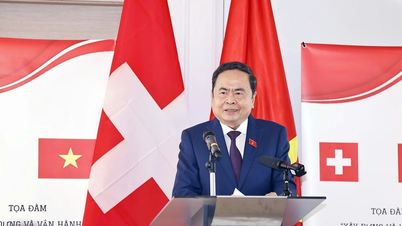






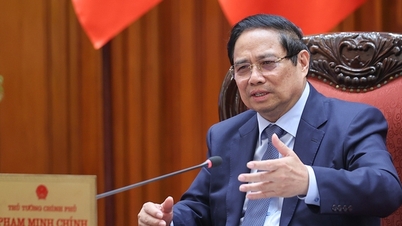




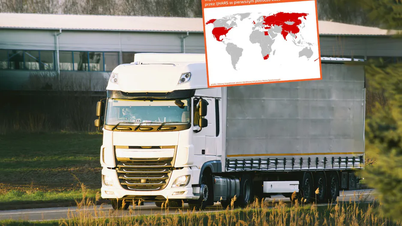
























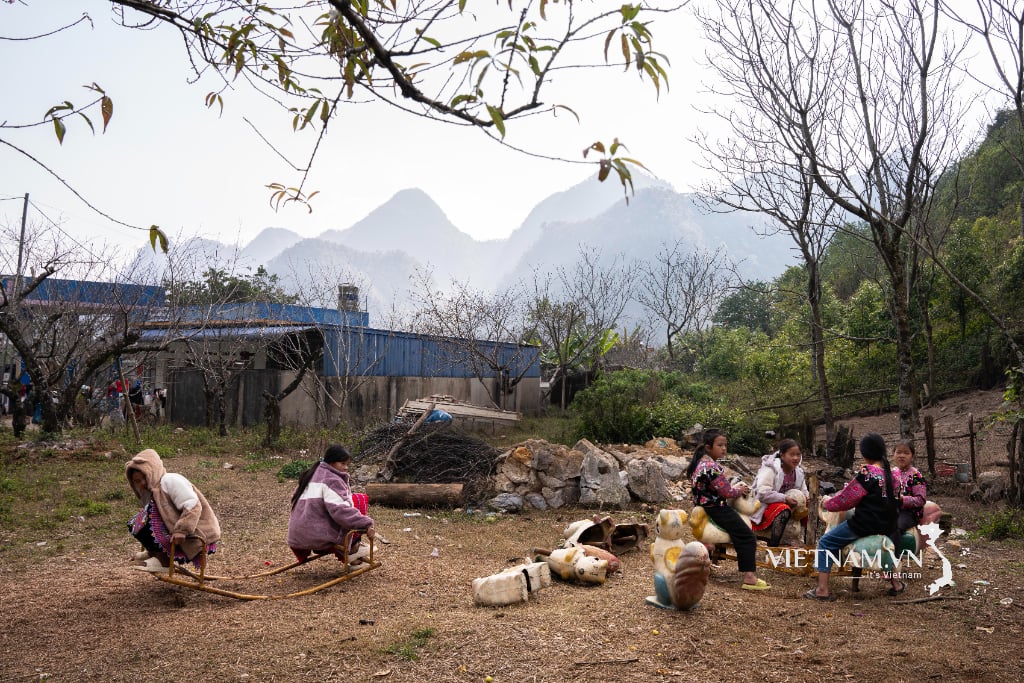
Comment (0)